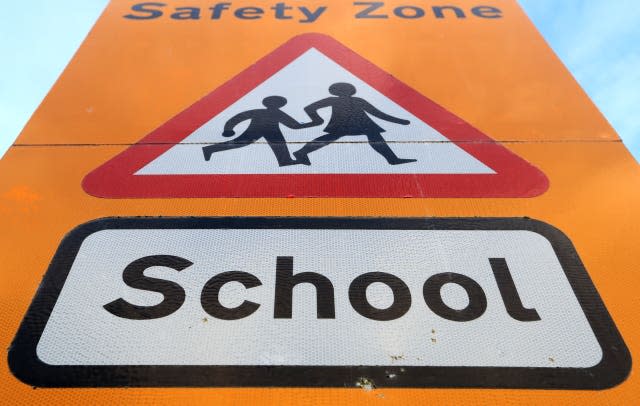Children on free school meals ‘more likely to experience harm online’
Disadvantaged children are more likely to experience harm online, new research has suggested.
A survey of children and parents appeared to show that pupils receiving free school meals generally experienced greater negative emotions than their peers.
Children’s online safety group Internet Matters said its research suggested that parents of children who receive free school meals are consistently more likely to report that their child has been exposed to a wide range of online harms.

It said that according to its survey, 74% had experienced at least one online harm, compared to 60% of those children not receiving free school meals.
The research was based on 1,138 parent and child interviews of children aged nine to 16 from August 2022, 970 interviews with parents of state school pupils aged eight to 16, and 1,030 interviews with state school pupils aged nine to 16 in May and June this year.
The survey results suggested children on free school meals were more likely to say that being online makes them sad (14% compared to 4% of pupils not on free school meals), worried about their appearance (17% compared with 8%), and jealous of other people (18% compared with 7%).
A quarter of free school meals children surveyed said they have more friends online than they do at school, compared with 19% of children who do not receive free school meals.
While Internet Matters said this points to the role of digital technology in helping children make connections, it also “raises significant concerns about who these ‘friends’ might be and whether they are missing out on forming connections in the offline world”.
The survey also suggested parents of children on free school meals are almost twice as likely to be concerned about gambling than other parents, which the organisation said could be linked to those children spending more time playing games “where gambling-type behaviour can occur, and the fact that these families are likely to be under greater financial pressures”.
The research also found that free school meals parents were more than twice as likely to say their children had a poor body image or low self-esteem as a result of what they have seen online, and more than three times as likely to say their child had proactively viewed content from, or communicated with, radical or extremist groups.
The organisation, which is industry-funded and has members including Google and Meta, said their research suggests schools must pay close attention to children on free school meals particularly.
Updated guidance on RSHE (Relationships, Sex and Health Education) in schools is due to be published for consultation in the autumn.
Internet Matters said that, in light of its research, the online component of RSHE must be “bigger and better, focused on helping children recover from negative experiences as well as prevention in the first place”.
Simone Vibert, head of policy and research at Internet Matters, said: “Recent years have highlighted the challenges faced by many families in securing access to the online world.
“But this report shows that even when families experiencing financial disadvantage are able to get online, there is still inequality, with children receiving free school meals having a worse experience online than their peers.
“During this cost-of-living crisis, it is more important than ever to ensure that all families are able to get help to stay safe online. Schools are part of the answer to this, but they need support.”
A Government spokesperson said: “Our Online Safety Bill will become law in a matter of months, making the UK the safest place in the world to be online by placing a legal duty on social media platforms to protect children from bullying and violent content – or face significant fines.
“We’re currently carrying out an urgent review of the Relationships, Sex and Health Education curriculum which includes considering how we can make the guidance clearer on issues relating to online safety.”


